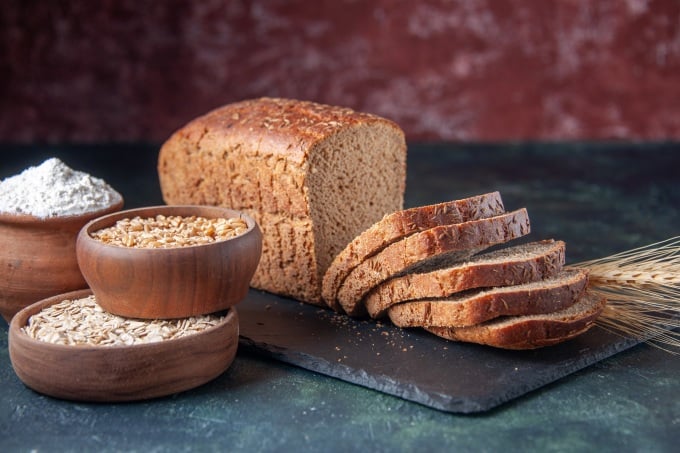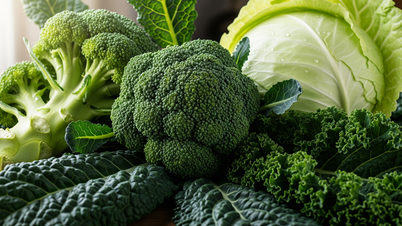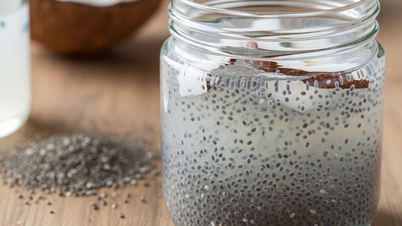People who eat about 71 grams of whole grains a day have lower levels of mental decline than those who eat less, equivalent to being 8.5 years younger, according to US research.
Whole grains like whole wheat bread, quinoa, oats, brown rice and popcorn offer many health benefits, including brain health.
A November 2023 study by Rush University, USA, on more than 3,300 people, average age 75, showed that people who consumed a few servings of whole grains every day had a slower rate of memory and cognitive decline.
Specifically, participants were divided into 5 groups depending on the amount of whole grains they ate, including rye bread, cornbread, oats, quinoa. The lowest consumption group ate less than 0.5 servings per day, the highest group ate about 2.5 servings per day. One serving is equivalent to about 28g.
As a result, after 6 years of follow-up, the group that ate the most whole grains had a lower level of memory decline, equivalent to being 8.5 years younger than those who ate less of this food every day.
According to researchers, whole grains may have a protective effect on cognition and memory. Because they contain fiber, polyphenol compounds, vitamins B and E, providing antioxidants that reduce inflammation and oxidation associated with memory loss.
People can reduce their risk of dementia by including at least 3-5 servings of whole grains in their diet each day. A healthy diet that includes whole grains also benefits the brain and overall health. Limit processed foods and refined grains that are not beneficial. Examples include white bread, baked goods, bagels, white rice, and white pasta.

Bread made from whole grains. Photo: Freepik
According to the National Center for Complementary and Integrative Health, a plant-based Mediterranean diet rich in fruits, vegetables, whole grains, legumes and nuts, olive oil, fish, and seafood affects cognitive aging. This diet reduces the risk of Alzheimer's disease and dementia.
Foods in the Mediterranean diet are rich in disease-fighting antioxidants. People with a diet rich in whole grains, vegetables and fruits have a lower risk of disease. Eating 3-9 servings of vegetables and whole grains, and up to two servings of fruit a day according to the Mediterranean diet can prevent neurodegeneration and chronic diseases such as heart disease, cancer and diabetes.
A 2020 study by the University of Edinburgh in the UK of 511 people also showed that the Mediterranean diet is associated with better cognitive function. Over time, this eating pattern can slow cognitive decline and reduce the risk of developing forms of dementia. Eating a Mediterranean diet also improves cognition in people at risk of heart disease and other vascular diseases.
Mai Cat (According to Everyday Health )
| Readers ask questions about neurological diseases here for doctors to answer |
Source link












































































































Comment (0)